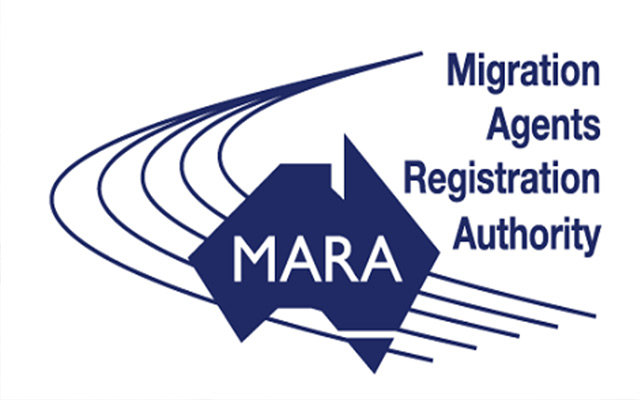Study Abroad: Frequently Asked Questions
 Australia International Students Study Abroad Student Visa Visa Application Canada Universities Study Abroad Consultants Study Abroad Agency Admission Process Migration Experts Sydney ICEF budget FAQs Frequently Asked Questions Educational Agency
Australia International Students Study Abroad Student Visa Visa Application Canada Universities Study Abroad Consultants Study Abroad Agency Admission Process Migration Experts Sydney ICEF budget FAQs Frequently Asked Questions Educational Agency
Studying abroad is an exciting opportunity for many prospective international students. It is an amazing experience that gives students a chance to gain invaluable knowledge, broaden their horizons, and enhance their academic and personal growth.
Nevertheless, wanting to study abroad and getting to do so are two different things. Many students fail to accomplish their goals of studying abroad for various reasons. Either they misunderstand the process or they get stuck in the planning stages because they are overwhelmed. But in reality, studying abroad can be easy and stress-free if you choose the right educational agency. However, even after students have chosen a study abroad agency, they still have many doubts and questions about the process, programs, logistics and more.
You may try Googling the best educational agency online but the results will leave you with agencies that are either expensive, inaccessible, unaligned with your educational goals or simply looking out for their own interests.

So we’ve created this extremely-detailed and informative article that answers some of the most frequently asked questions students have when speaking with our international educational counsellors.
WHAT STUDY ABROAD PROGRAMS ARE AVAILABLE AND HOW CAN I CHOOSE THE RIGHT ONE?
This is one common question we get from students. And the answer is simple: there are multiple study abroad programs available to you as a prospective international student. However, not every student can apply for the programs they desire. Since every case is different, every student is matched with a dedicated educational counsellor. Your counsellor will ensure that you choose the right course and study abroad destination based on your educational qualifications, academic requirements, language proficiency, personal preferences, work experiences, and more.
These are some of the most popular courses in Australia and Canada for international students:
- Nursing
- Automotive
- Architecture
- Tourism, Hospitality and Commercial Cookery
- Information Technology
- Accounting and Business Administration/Management
- Health Sciences/Community Services (Aged Care/Disability Care/Teaching/Childhood Care)
Whether you're looking for semester-long or year-long programs, immersive language experiences, internships, or specialized subject-focused programs, our agency is dedicated to providing an array of options that perfectly align with your goals. Our ultimate aim is to carefully match you with programs that not only meet your academic objectives but also offer the courses necessary for your personal and academic development.
HOW MUCH WILL IT COST TO STUDY ABROAD?
The cost of studying abroad isn't as straightforward as you might think. There are many factors that determine how much it would cost to study and live abroad as an international student. And how much it will cost will all depend on a bunch of factors: which country you're going to, which school you're attending, how long you'll be studying, and, of course, your fabulous lifestyle.
Here’s a guide that could help students who wish to study in countries like Australia and Canada. Here's an approximate breakdown of the annual costs:
| AUSTRALIA | CANADA | |
| Diploma | 10,000 AUD | 10,000 CAD |
| Master's | 15,000 AUD | 15,000 CAD |
| PhD | 15,000 AUD | 20,000 CAD |
Please note that the cost for each student will vary depending on the tuition fees, length of study, and the study destination among others. The figures above should be used only as a guide and not as an exact cost analysis.
Your designated educational counsellor from VisaConnex will provide you with a more accurate breakdown. Your counsellor will guide you through the specific application process and provide you with vital information on initial expenses like application fees (including visa fees, biometrics, medicals etc) and other fees such as the initial downpayment required by the school you’ve chosen, plane ticket etc.
Finally, as your study abroad educational agency, we can give you a rough estimate of the funds needed for various daily expenses including accommodation, feeding, transportation etc. Please note, however, that these expenses will vary depending on your lifestyle as an international student as well as the country and city you choose to study in.
Please note: It is the student's responsibility to purchase a plane ticket. However, if they require assistance, our agency can help them with the process.
CAN I WORK PART-TIME WHILE STUDYING ABROAD?
The short answer is yes, you can. International students are allowed to work part-time while studying abroad in countries like Australia, New Zealand, Canada, the U.K., and the United States. However, not all study abroad destinations have the same work requirements and provisions for international students.
For example, in Canada, international students can work up to 20 hours per week maximum and full-time during semester breaks. In Australia, an international student is allowed to work 48 hours per fortnight and full-time as a higher education student (Master's of Research Students or PhD students) or during holidays. The salary is also different, in Canada, international students working part-time are paid 10 CAD per hour. While they are paid around $15-$21 AUD per hour in Australia.
Please note: It is the student's responsibility to find a part-time job.
WHAT IS OUR VISA APPROVAL RATE AND DO WE HAVE EVIDENCE OF BUSINESS AUTHENTICITY?
This is a very good question for all prospective international students to ask. It is important for you to do your research and ask the right questions. Because the last thing you want is to sign up with an agency that has a poor track record. At VisaConnex, we take pride in our visa approval rate, which is an astounding 99%. We're practically visa wizards. We have successfully helped numerous students with their school applications and visa lodgements and you could be our next student visa granted.
And of course, we have proof of our legitimacy! We don't blame you for asking, as it's important to trust the agency you choose. We have our head office in Australia, but we're also registered as a legitimate business in the Philippines with all the necessary permits. If you still need more reassurance, just take a look at our social media accounts. You'll find plenty of testimonials from students we've helped secure their student visas to countries like Canada and Australia.
HOW CAN I ENSURE MY SAFETY AND SECURITY ABROAD?
Safety is a top priority when studying abroad. We will go over the dos and don'ts with you during your pre-departure orientation. However, most of the cities we place our students in are widely known and lauded as “student-centred” cities. This means the cities are among the safest cities on earth for international students. So you can rest assured knowing you're safe.
IS IELTS REQUIRED FOR STUDYING ABROAD?
The need to take the IELTS for studying abroad depends on the specific requirements of the university or educational institution you are applying to. Many English-speaking countries, including Australia, Canada, the U.K., the U.S., and New Zealand, may require international students to demonstrate their English language proficiency as part of the student visa application process.
However, not all universities, colleges or educational institutions require IELTS. Many schools wave IELTS for students who are applying from English-speaking countries or who have completed their previous education in English. The good news for you is that as part of our collaboration and partnership with numerous educational institutions across the globe, many schools waive the requirement of the IELTS exam for students who apply through our agency.
IS IT POSSIBLE FOR INTERNATIONAL STUDENTS TO SUPPORT THEMSELVES BY WORKING PART-TIME?
This is a difficult question to answer. But the truth is, working part-time can provide international students with additional income that could prove to be extremely helpful while studying abroad. If an international student is hardworking and doesn’t live a lavish lifestyle, the short answer is yes. The earnings from your part-time job could potentially be enough to cover certain living expenses such as feeding, transportation, accommodation and a few other necessities.
Just a heads up, working part-time can definitely give you some extra cash, but it might not be enough to cover all your tuition fees and living expenses. We highly recommend that you carefully plan your study abroad adventure to make sure you have enough funds to cover all your educational expenses while you're away.
WHAT ARE THE MOST IN-DEMAND OCCUPATIONS IN AUSTRALIA?
International students constantly ask this question and our expert counsellors have provided some interesting answers for you. It is a known fact that Australia has one of the most booming financial economies in the world. As a result, the country has a thriving job market with several occupations experiencing high demand. Some of these jobs are:
- Nurses
- Electricians
- IT Analysts/Specialists
- Software Programmers
- Early Childhood Teachers
- Chefs, Tourism and Hospitality Workers
- Childcare and Aged/Disabled Care Workers
HOW LONG DOES IT TAKE TO PROCESS A STUDENT VISA?
The answer to this question will depend on the destination country you would like to study in and sometimes, the individual circumstances of the applicant. Since every country has different processes, guidelines and timelines, we cannot give an exact date. An example is Australia, we generally advise students to start processing at least 3 months prior to the course start date. But this isn’t for all countries.
But don't worry. Just reach out to your dedicated educational counsellor who's handling your application. They'll have all the inside scoop and can give you a more personalized answer based on your unique situation. So go ahead, send them a text or give them a call.
WHAT COURSES HAVE PATHWAYS LEADING TO PERMANENT RESIDENCY?
If you're curious about the courses that offer pathways to permanent residency, it's important to consider the country you wish to study in. Each country has its own skill shortages, job vacancies, and immigration policies that can influence the availability of such pathways. To get the most accurate and personalized advice, it's best to consult with your educational counsellor. They can provide you with the best guidance based on your specific interests, abilities, and qualifications.
WHAT DOCUMENTS DO I NEED TO APPLY FOR A STUDENT VISA?
The specific requirements will vary depending on the country and institution, but some common documents include:
- Birth Certificate
- Marriage Certificate (If required)
- Transcript of Records
- Certificate of your Secondary Education
- Passport
- Statement of purpose/GTE (Australia)
- CV or Resume
- Bank Statement (If required)
- IELTS (if required)
- Biometrics
- Employment Certificate
- Proof of Insurance/OSHC (Australia)
- Medical Exam
Please note: It is important to keep in mind that students may not be obligated to provide ALL of the documents mentioned above, particularly for IELTS and bank statements. This information should be used as a general guide and may vary depending on individual circumstances.
Do You Have Unanswered Questions?
We’ve covered some of the most frequently asked questions students have when speaking with an educational counsellor. But, we may not have answered a specific question you have. If you have a pressing question or line of inquiry that wasn’t answered in this article, don’t worry. 
You can speak to a dedicated and expert international educational counsellor who is ready and willing to answer your questions right away. Schedule a consultation with us and we’ll get back to you right away.







